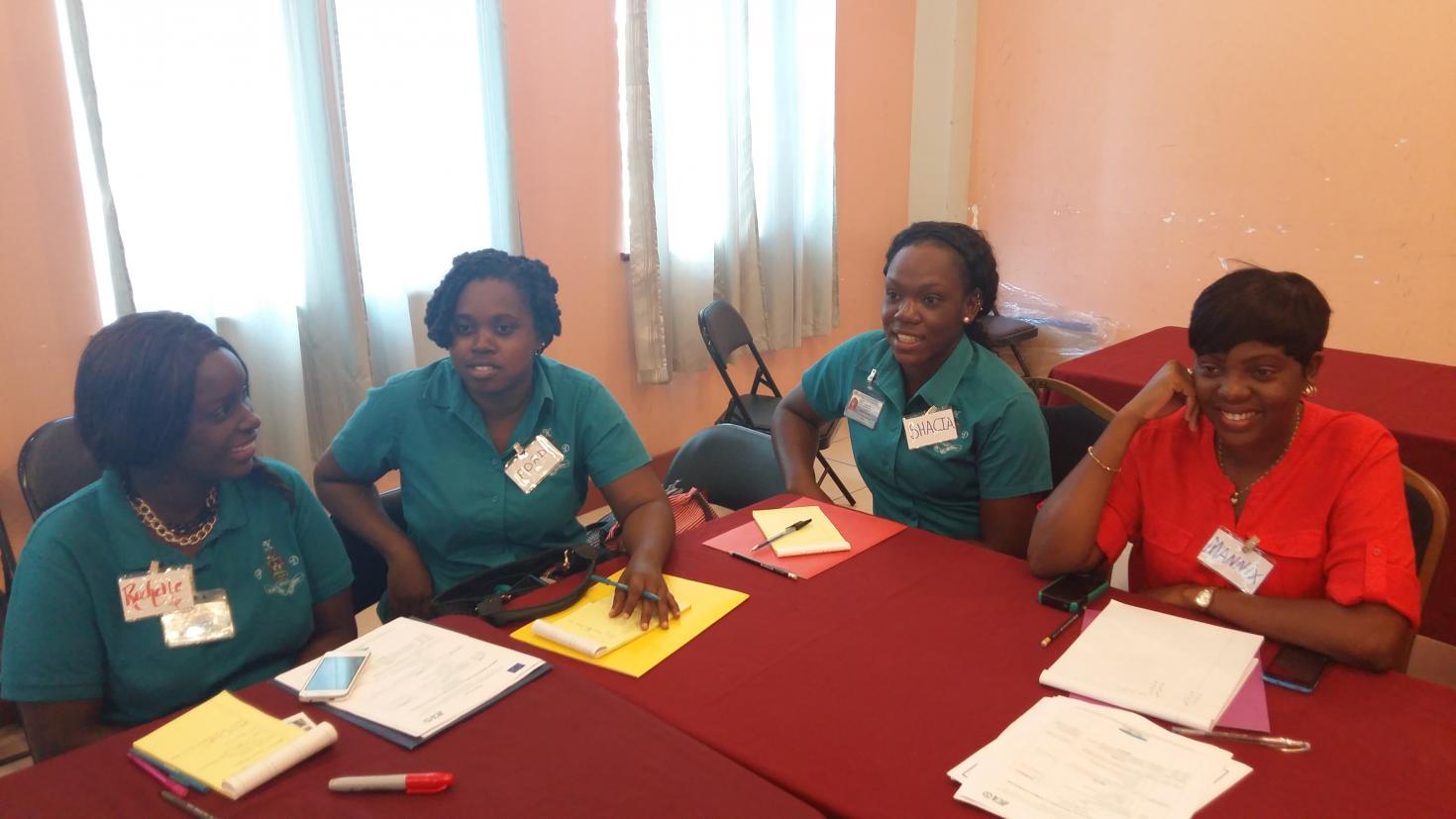“Train the trainer” initiative commences in Antigua and Barbuda. The workshop was conducted by two professionals who were trained specifically to train other professionals on this topic.

Antigua and Barbuda. A workshop on Hazard Analysis and Critical Control Points (HACCP) was held for representatives from the public sector of Antigua and Barbuda to support and strengthen the agro-processing industry within their respective districts.
The workshop was attended by twenty public sector technicians drawn from the Central Board of Health, the Consumer Affairs Department, Ministry of Education – Food and Nutrition Department, Ministry of Agriculture, Bureau of Standards, the Barbuda Council and the Ministry of Trade.
The workshop was organized by the Inter-American Institute for Cooperation on Agriculture (IICA) and supported under the 10th EDF SPS Project: Support to the Caribbean forum of ACP states in the implementation of commitments undertaken under the economic partnership agreement (EPA): Sanitary and Phytosanitary Measures.
This national workshop resulted from an agreement with the beneficiaries who participated in the three-phase Train-the-Trainers Programme, conducted by the Grocery Manufacturers Association Science and Education Foundation (GMASEF), who had been contracted to deliver one training event on this topic in 2016 at the national level in order to build the capacity of public sector professionals and private sector stakeholders in HACCP. The beneficiaries of the programmes were the facilitators for the national workshop, Kathleen Forde and Julie-Ann Laudat.
Sharon Peters, Permanent Secretary in the Ministry of Agriculture, Lands, Fisheries and Barbuda Affairs (MALFBA), encouraged the participants to make optimum use of the HACCP training as food safety was an important aspect of building credibility within the public sector and in the export markets.
She also added that she expected the technicians present to share the knowledge gained with their colleagues in their respective ministries.
IICA’s national specialist, Craig Thomas, stated that IICA’s efforts were aimed at supporting the countries of the Americas in strengthening their national food safety control systems, with a view to contributing to the protection of consumer health, encouraging efficiency, and assisting countries to compete successfully in national, regional and international markets.
The training was interactive and was well received by the technicians, who will return to their respective workplaces and make a difference. Both facilitators will conduct a similar workshop for the private sector in December.
More information: craig.thomas@iica.int











